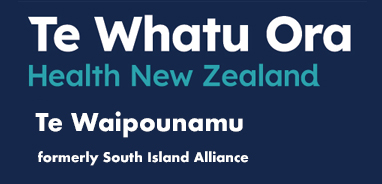A new report summarising interRAI home care data on the health of older people in the South Island is available for the first time, published by the South Island Alliance’s Health of Older People’s Group (HOPSLA).
interRAI is a set of validated assessment tools that facilitate a best practice approach and record the findings within a data set. This new report summarises data captured from DHBs via the Home Care Tool and Contact Assessment Tool from 1 July to 30 September 2014, and provides a snapshot of the health of older people residing in their homes across the region. The report includes scales summarising the major health domains including cognition and physical function scores, as well as priority level and frailty, captured through the Method of Assigning Priority Level (or MAPLe) assessment, and the CHESS assessment, which measures changes in health, end-stage disease, signs and symptoms.
Ensuring a comprehensive clinical assessment occurs for an older person is an important step in health care delivery, explains Jane Large, Facilitator for HOPSLA: “The needs of older people are often multiple and complex, and at times can be both. Older people often have more complicated multisystem problems than other adults and as such are at increased risk for morbidity and mortality. This combination of factors requires comprehensive assessment and interventions that take into account all of the factors that impact upon health.”
With the new report, HOPSLA members aim to support health staff and managers to plan for improvements in treatment and management of older persons’ healthcare: “The interRAI assessment system records each assessment, so that data is available that can support health staff and researchers to develop and deliver comprehensive and effective treatment plans. So it helps us to be more effective, and have better outcomes for patients and for the wider health system.”
The release of this information marks a new milestone for interRAI in the South Island as Dr Valerie Fletcher, Clinical Director of Community Services Older Person Health, Canterbury and West Coast DHB explains “Whilst quarterly South Island wide data has been developed for the last three quarters, this is the first time we have managed to shape the data to where it is providing consistent, reliable and useful information that we can share with the South Island health sector.”
The roll out of interRAI across the South Island is also changing the way health staff work, as Dr Fletcher explains: “Staff are being asked to record all assessments electronically now, rather than using a paper-based system, which is meaning a re-think in the way staff access and use technology.”
Plans are underway to expand the reporting as more data becomes available, to make it useful for primary care and aged residential care. Other reports are also being developed, for example looking at the factors associated with good and poor outcomes for people. In the meantime the South Island interRAI Summary Report: Home Care can be found on the South Island Alliance website here and new reporting will be available each quarter.
Ends
For more information contact Anna Dorsey, South Island Alliance Communications
Anna.dorsey@southerdhb.govt.nz or 027 588 4672
Background
interRAI stands for ‘international Resident Assessment Instrument’: a name that refers both to a suite of assessment instruments and to the organization that developed them. The interRAI organization is a not-for-profit collaborative network of researchers and clinicians from over 30 countries, including New Zealand, who engage in improving health care for persons who are elderly frail or disabled. Membership of interRAI includes obligations to share anonymous data internationally and to provide support to other members.
| interRAI assessments in New Zealand currently | |
| Name of assessment | Purpose of assessment |
| Contact Assessment | A shorter, screening assessment suitable for people with short term or non-complex needs to support living at home |
| Community Health Assessment | Designed to explore the level of complexity of clients and identify general health and living issues for community clients |
| Home Care Assessment | Designed for people with more complex needs who are able to live at home. Once a certain level of need is identified the person is referred to residential care. |
| Long Term Care Facilities Assessment | Assessment designed for people in residential care to develop and update their care plans |








